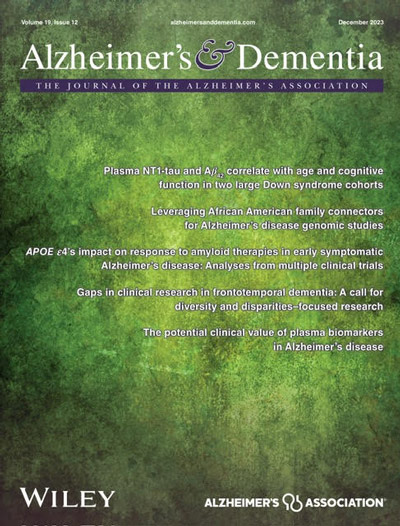Cognitive trajectories among English- and Spanish-test-takers in the NACC
Abstract
BACKGROUND
Cognitive assessments were traditionally developed using English-speaking populations, creating a potential disadvantage and misrepresentation for non-English speakers. We aimed to determine whether English- and Spanish-test-takers have similar or different cognitive trajectories.
METHODS
Participants included 931 Hispanic/Latino adults from the National Alzheimer's Coordinating Center. Using mixed-effects regression analyses, we examined baseline differences and longitudinal changes in memory, attention/working memory, executive functioning, and language between Spanish- and English-test-takers. Models controlled for age at baseline, education, sex, Hispanic/Latino heritage, and cognitive status.
RESULTS
English-test-takers performed significantly better than Spanish-test-takers across all domains at baseline. No differences in cognitive trajectories were detected, except for attention/working memory, in which Spanish-test-takers declined at a slower rate than English-test-takers.
DISCUSSION
Despite baseline differences, both groups exhibited largely similar cognitive aging trajectories. These findings suggest that cross-sectional differences may reflect measurement bias rather than differences in cognitive aging and an underestimation of cognitive abilities among Spanish speakers.
Highlights
- Baseline disparities in cognition were observed across all domains, except for language, with Spanish-test-takers scoring significantly lower than English-test-takers.
- Despite baseline differences, rates of cognitive decline were largely similar across language groups, suggesting potential measurement bias rather than differences in cognitive aging.
- Spanish-test-takers showed greater maintenance in attention over time, pointing to possible benefits from repeated testing or cultural factors that warrant further investigation.



 求助内容:
求助内容: 应助结果提醒方式:
应助结果提醒方式:


